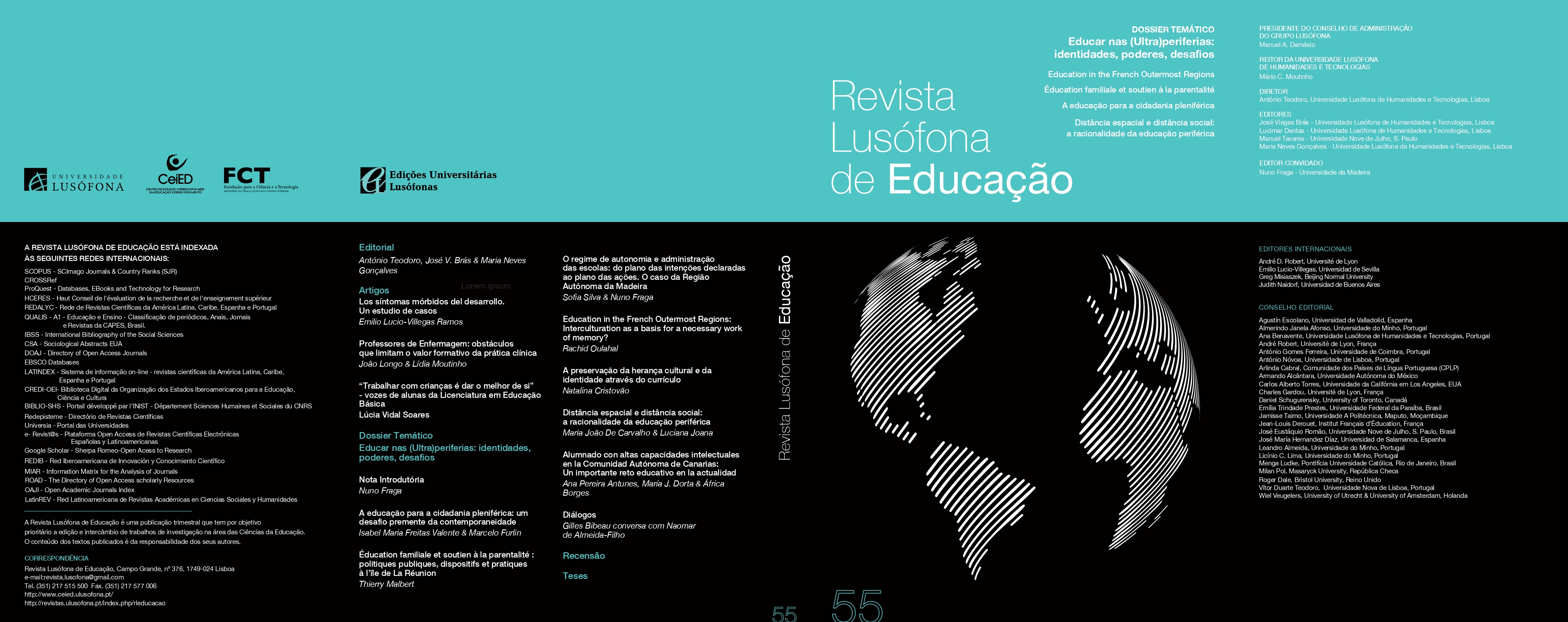Education in the French Outermost Regions: Interculturation as a basis for a necessary work of memory?
Resumo
The French outermost regions are fully part of the European Union though they are geographically distanced from continental France. Moreover, these regions inscribe within France’s history though they also have their own history apart from France, a history grounded within their geographical surroundings but also a history between slavery and colonization. In 2022, education is still both a priority and an enigma for the French government when it comes to its outermost regions (Guadeloupe, Guyana, La Reunion, Martinique, Mayotte and Saint-Martin). Strong differences have been pointed out between these environments and metropolitan France regarding the education system and its efficiency. The main issue for the French government is indeed that the Outermost regions are different from metropolitan France but they are also very different from one to another. These various disparities make it difficult to think of a common school system and curriculum. The goal of this article is to provide an update on education issues France has to deal with regarding its outermost regions. We will then investigate how these issues can be related to memory matters, both individual and collective, and how an intercultural perspective can be regarded as a basis for a necessary work of memory towards a more appropriate educational system.
Keywords: France; outermost regions; education; interculturation.
Downloads
- Os autores e as autoras conservam os direitos de autor, sem quaisquer honorários, e concedem à revista o direito de primeira publicação, com o trabalho simultaneamente licenciado sob a Licença Creative Commons CC-BY - Atribuição 4.0 Internacional, a qual permite que outros compartilhem (copiar e redistribuir o material em qualquer suporte ou formato) e adaptem (remixar, transformar e criar a partir do material para qualquer fim, mesmo que comercial), com reconhecimento de autoria e publicação inicial na RLE;
- Os autores e autoras têm autorização para assumir contratos adicionais separadamente para distribuição não-exclusiva da versão do trabalho publicada nesta revista (ex.: depositar em repositório institucional ou como capítulo de livro), com reconhecimento de autoria e publicação inicial na RLE;
- Os autores e autoras têm permissão e são estimulado/as a publicar e distribuir o seu trabalho online (ex.: em repositórios institucionais ou na sua página pessoal), já que isso pode aumentar o impacto e a citação do trabalho publicado (Veja O Efeito do Acesso Livre).








